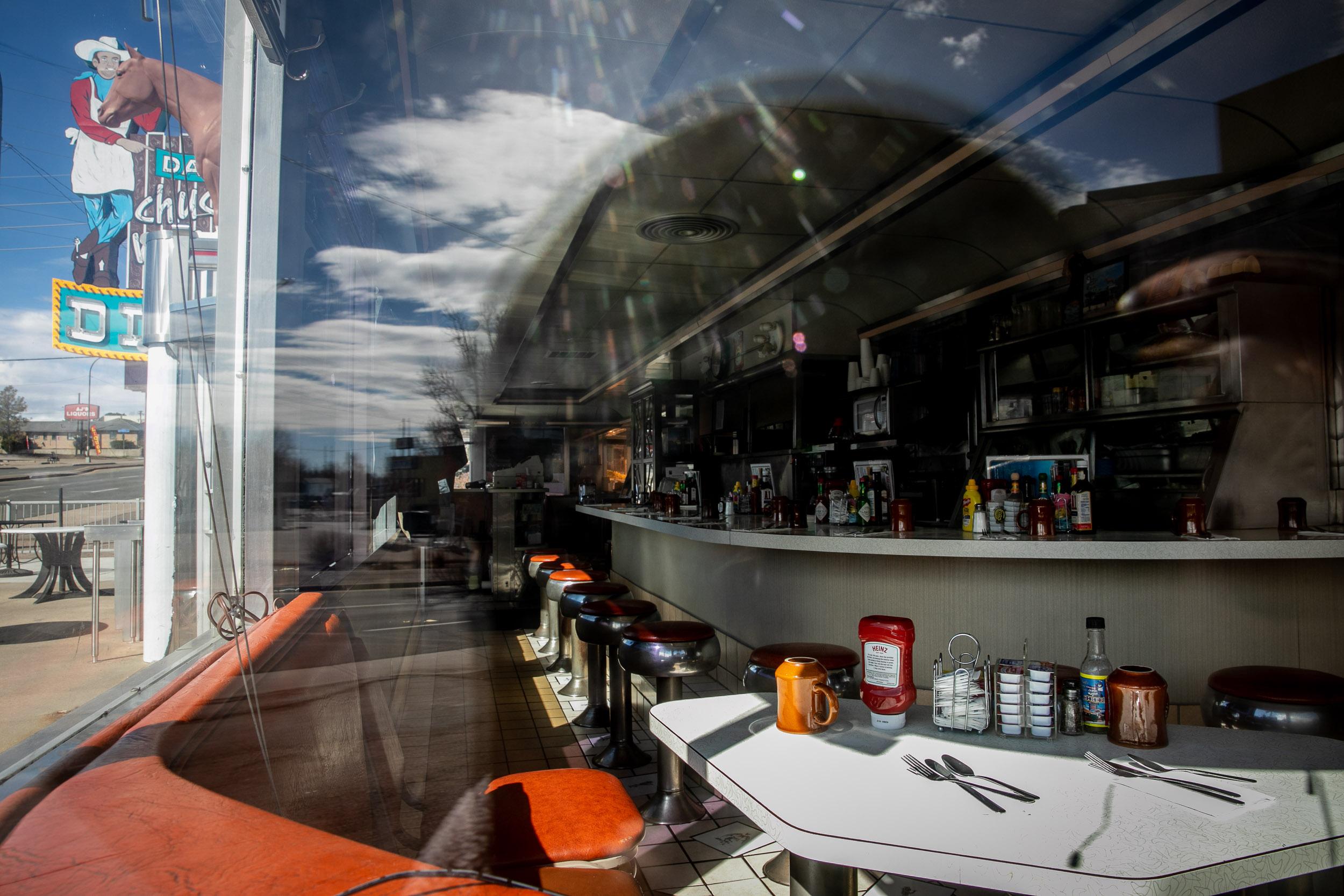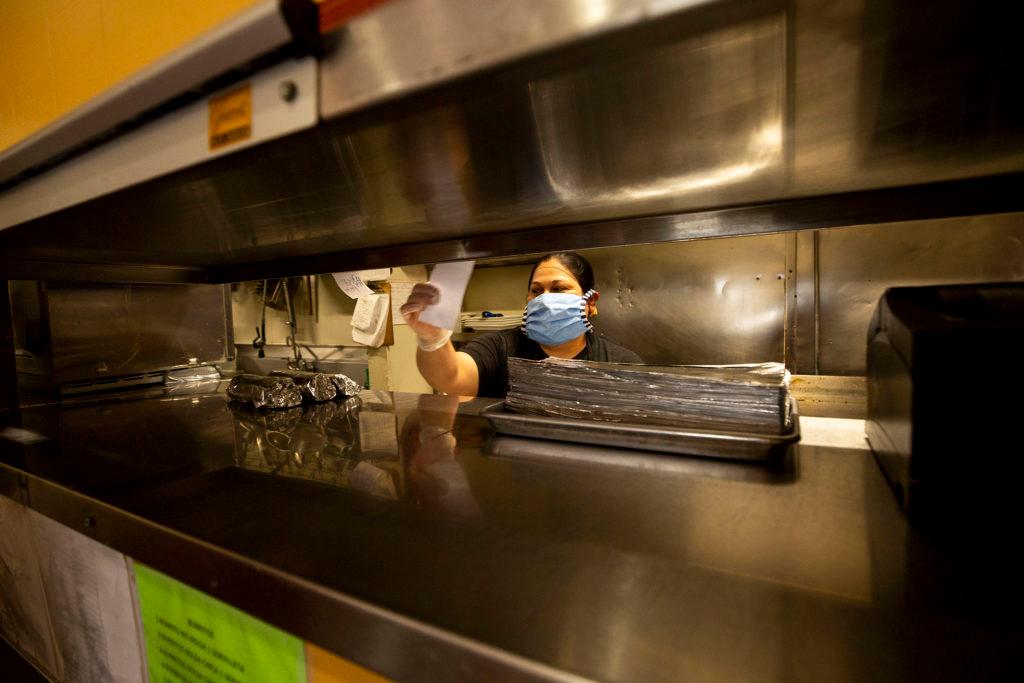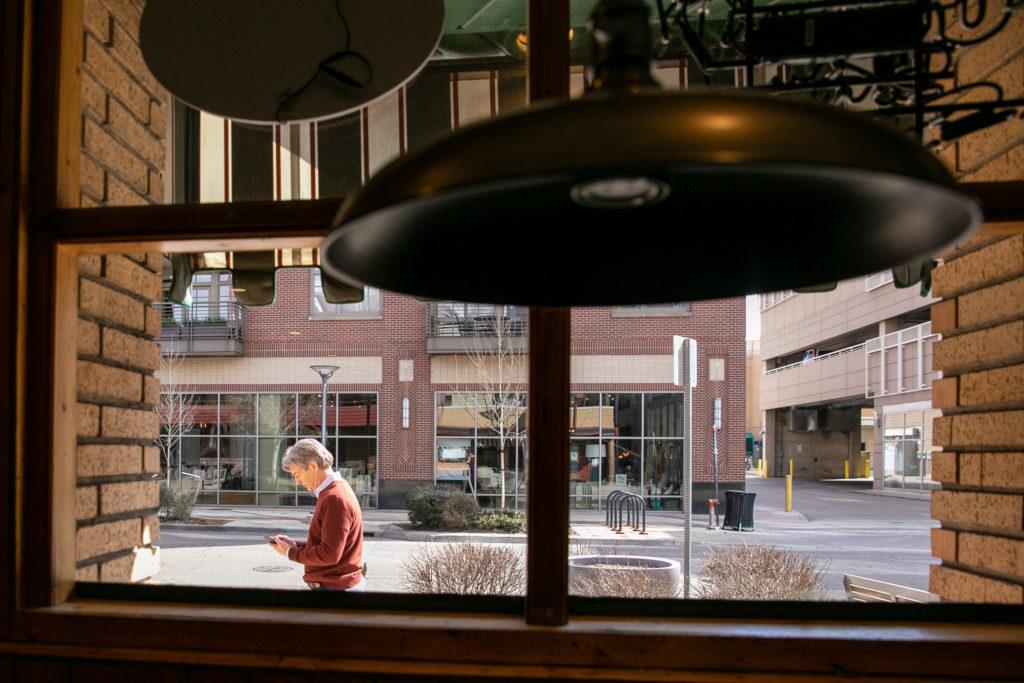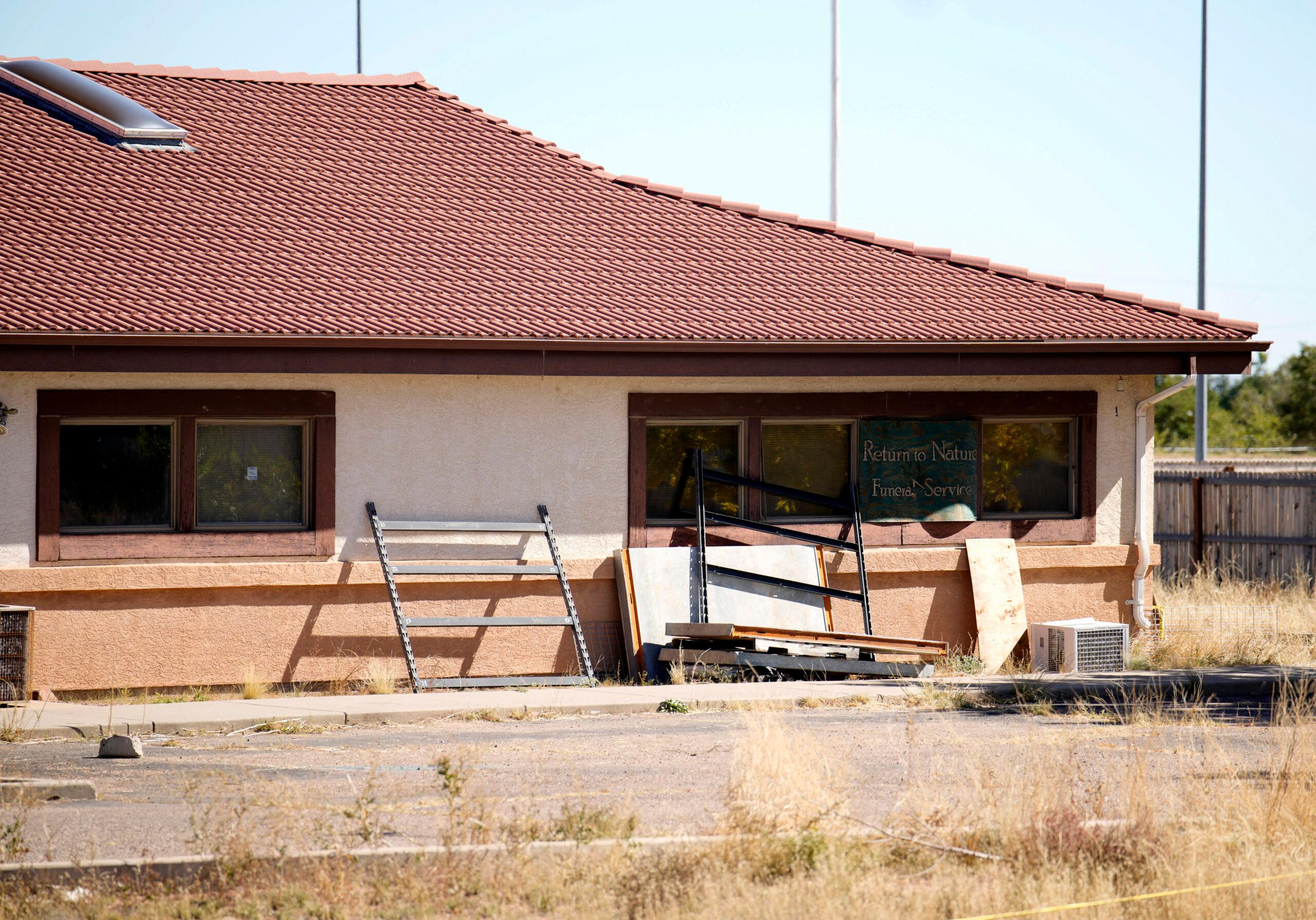
Chef Alex Seidel lifted his spatula to the wind in mid-March and made a decision to close his mini restaurant empire. With the new coronavirus sweeping across Colorado, Seidel decided the safety of his diners and employees came first. He would shutter high-end dining destinations Fruition and Mercantile Dining & Provision and two other restaurants in Denver.
“I recall calling our landlords at Union Station before the mandated closures,” Seidel told CPR News, “just to kind of ask, what protocol is in this public space, and what if we had to close down?”
His decision was as prescient as it was difficult. Within days, Gov. Jared Polis ordered restaurant closures statewide. That was March 17. A week later, he issued a stay-at-home order, imposing additional restrictions on businesses and customers.
Restaurants have now been closed for more than a month, and industry representatives say the closure will kill many restaurants if it goes on -- and perhaps even if they’re allowed to reopen, should state and local governments impose challenging rules and restrictions. Polis has said he hopes for a mid-May reopening.
Seidel acted quickly, hoping to take care of staff even as they lost their jobs, he said.
“Within 24 hours, we got all of our teams together in person,” he said. “We had letters written. We had directions to unemployment. We wanted our teams to be able to have a fast track in that unemployment line, because we knew it was going to be long.”
Seidel, named the James Beard Award winner as top chef in the American Southwest in 2018, laid off almost 75 percent of his 197 employees.
“When you're mandated to close down, there's no way to keep paying people,” he said. “We wanted to be thoughtful about our employees' futures.”
Layoffs and closures spread quickly across Colorado’s restaurant landscape. Laid-off restaurant workers accounted for 37 percent of all jobless claims in the week after the governor announced the stay-at-home order, according to the Colorado Department of Labor and Employment .
Every week since, workers in Colorado’s accommodation and food service industry have filed more unemployment claims than any other industry, according to CLDE. Statistics released so far put the tally near 55,000.
In Denver alone, a mix of iconic and newer restaurants have been forced to close permanently. The Market at Larimer Square closed shop after 37 years. The 20th Street Cafe, run by the same family for three generations, blamed the pandemic for an untenable loss of customers. Scratch Burrito & Happy Tap closed after almost seven years in business, citing a 52-percent drop in sales during the shutdown.
The Colorado Restaurant Association says mom and pop restaurants with low cash reserves are most vulnerable.
Seidel and the few management team members he kept on payroll worried about the long haul. “My biggest concern was how our team is going to eat through these eight weeks,” Seidel said. “We took two days off to take a mental break. And we literally started to work on creating programs to feed our teams and to feed the community and, and to give us some sense of worth.”
The governor’s order required restaurants to cease in-person dining but allowed them to offer pick up, delivery and drive-through service. For the restaurants that have been able to stay open, these services have been a lifeline.
But revenues are down.
“Ninety-eight percent of Colorado restaurants in our recent survey have said that they've lost sales compared with the same time the year before,” Sonia Riggs, president of the Colorado Restaurant Association, told CPR News, referring to a questionnaire her organization conducted in mid-April.

Seidel pivoted how his restaurants would operate and whom they would serve. Mercantile has partnered with restaurants Morin, Kachina and Rioja to assist Colorado Restaurant Response, which helps feed people economically impacted by the pandemic. The restaurants prepare 2,100 meals a day, providing 100 meals for healthcare workers, 400 for food industry workers and 1,600 to families in need.
Fruition and Mercantile also provide 100 to 400 meals per week to Feed the Frontlines, an organization that helps feed essential workers.
Gov. Polis and local governments are beginning to relax stay-at-home orders. But the governor has not outlined new rules for how restaurants will open -- or when.
Riggs predicts disaster for the restaurant industry if reopening does not happen soon.
“Restaurants [in Denver] are saying if they can't open until the end of May, 30 percent may permanently go out of business,” she said. “Overall around the entire state, we're hearing about 22 percent may permanently close if restaurants don't start to open.”
Riggs and Seidel expect the rules that govern reopening will mandate seating limits, from 25 to 50 percent capacity, in the beginning.
“If it's at a limited capacity, say 50 percent or 25 percent,” Riggs said, “I've heard this from a number of restaurants, it just kills them more slowly.”
“Restaurants just cannot operate on 25 and 50 percent capacities,” Seidel said, adding that there is risk in opening too soon.
“I'm actually hoping that it goes a little bit longer,” Seidel said, stating he hopes the governor sets June 1 for reopening. “If it does open up [sooner], we can pretty much guarantee we're not going to be one of the first ones racing to open our dining rooms.”
Whenever restaurants reopen, it is not clear what the experience will look like or how it will feel. In the absence of state guidance, restaurants all over the state are trying to figure that out on their own.
The list of possibilities — servers wearing masks and gloves, disposable single-use menus, temperature readings upon entry, fewer tables spaced farther apart — is vexing restaurant owners and managers.
“This illness is airborne, and it doesn't travel in a straight line, it'll kind of linger,” Riggs said, predicting that fewer tables, spaced farther apart will be the biggest change. That might present a challenge for restaurants with small dining rooms. “It's going to be more frequent cleanings, perhaps somebody at the door opening the door for you so you may not have to touch the door handles.”

“There's so many things about touch and emotion in restaurants,” Seidel said, anticipating how masks might impact the dining experience. “That's why people go to them. There's eye contact and there's a simple smile and there's reading people's facial expressions. And a lot of that is going to be lost.”
Riggs said the Colorado Restaurant Association is asking local governments to be creative and flexible.
“Thinking outside of the box where we can, is going to be really important,” she said. “Denver is even saying, ‘Maybe we shut down some streets to allow for businesses to expand out into the street.’”
Seidel said optimism will drive any chances of an industry comeback.
“There was a lot of fear in the beginning within our team, but we overcame that hurdle,” he said with obvious pride. “We've had to look at the silver linings and when we do, we all realize, wow, we accomplished a lot in the last few weeks.”









